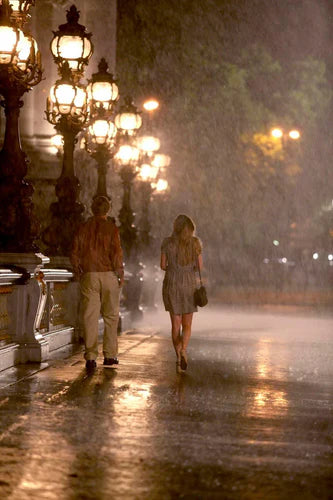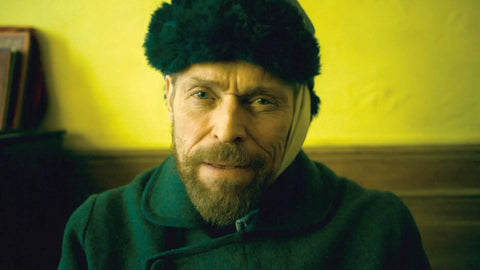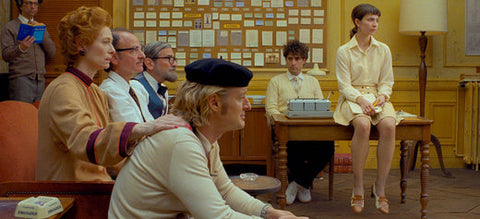
During my last trip to London, which spanned over ten days, friends kept telling me I should make a detour to Paris. I hesitated—not because of the city’s infamous pickpockets or the rumours of poor safety—but because I felt such a romantic place shouldn’t be visited alone. Don’t ask me how I knew Paris was romantic even before stepping foot there. I’m not entirely sure myself. Perhaps it’s the way films and literature have painted it, or maybe it’s my own daydreams. Either way, I was certain it was a city I would adore. Even if the trees lining the Champs-Élysées were bare, or if I didn’t catch a glimpse of the Eiffel Tower, sitting in a small café would be enough to inhale its air of romance.
Once, while chatting with a friend about Midnight in Paris, she mistook it for Before Sunset. I chuckled and gently corrected her. I first watched Midnight in Paris during my freshman year. Back then, I only remembered disliking the protagonist’s fiancée—a shallow, materialistic woman. Of course, I also noted how beautiful Paris looked at night, especially when the film whisked us back to an older, dreamier version of the city. But that was all I took away from it.
Later, I read Hemingway’s A Moveable Feast. His prose is some of the smoothest I’ve ever encountered, like sitting beside an extraordinary storyteller spinning small, enchanting tales. These anecdotes, though modest, hold you spellbound. Through his words, I glimpsed old Paris—Hemingway at work, his interactions with companions, and the deep love he held for his wife at the time. The more I read, the more I felt that Midnight in Paris was tipping its hat to this memoir—not only because Hemingway appears in the story, but because of the spirit it captured.
Watching the film again yesterday, I noticed the protagonist mentions A Moveable Feast early on. He dreams of stepping into Hemingway’s Paris, but his fiancée brushes it off, preoccupied with dinner plans with her parents. Later, she reconnects with an old friend—a self-absorbed pseudo-intellectual who uses every opportunity to show off his knowledge (an insufferable type we’ve all met). She admires him greatly, even dismissing her fiancé’s talent in comparison. While the protagonist, in Woody Allen’s trademark tone, mutters that the man is “pseudo-intellectual garbage,” she insists, “No, he’s a real scholar.”
“We ate well and cheaply and drank well and cheaply and slept well and warm together and loved each other.”
This line from A Moveable Feast stays with me. It evokes a vision of love and life that is beautifully simple. When you’re with someone you love, material things fade into the background. But the fiancée in Midnight in Paris doesn’t see it that way. She revels in fine wines and expensive chairs, dismissing her fiancé’s passion for writing novels in favour of more lucrative screenplays. She can’t grasp the beauty of rain-soaked Paris streets and scoffs at his fantastical midnight adventures. Practicality trumps whimsy for her, always.
“You belong to me and all Paris belongs to me, and I belong to this notebook and this pencil.”
Perhaps Hemingway loved Paris so deeply because he loved his wife just as profoundly. She believed in him, even when he was just a struggling soldier-turned-reporter aspiring to be a writer. Talent is like a ghost—it’s invisible to most, but those who see it can’t unsee it. And because they loved and believed in each other, even the simplest days became extraordinary.
While Midnight in Paris appears to be about nostalgia, the protagonist eventually realises that the past belongs to those who lived it. What’s truly his is the present. In that present, he meets Gabrielle, and everything begins again with her name and one simple line: “I don’t mind getting wet.”
I, too, used to dwell in nostalgia. I would rewatch In the Mood for Love countless times, imagining myself in 1960s Hong Kong. I clung to the past, unable to let go of what was lost. But now, I only wish to live fully in the present. The past is unreachable, and the future remains uncertain and precarious. So I choose today—to read, to write, to live, and to love. Perhaps that’s the essence of the most beautiful little days.
Now playing: Ma Di’s "Chelsea Hotel 8310".
"May I meet you not in the future, nor in the past, for we’ve already lost the past, and the future is too far away, unreachable. Let us meet now, even if it’s not our most beautiful moment."


